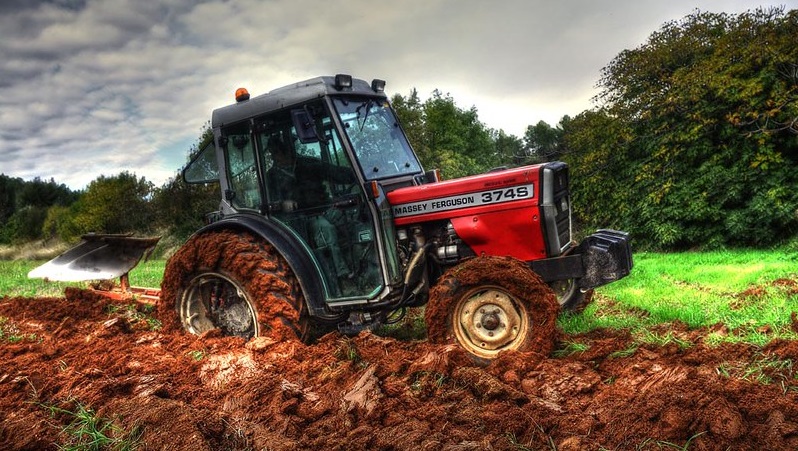At Cop28 last December, France’s former minister for the energy transition, Agnès Pannier-Runacher, announced she was “very happy” to support a Dutch initiative to remove subsidies for fossil fuels.
“Leading by example is obviously a key way to move forward and to show that the solutions are under our eyes,” she told a press conference, alongside ministers from Canada, Spain and other – mainly European – governments.
But, just two months later, in efforts to placate protesting farmers, her government U-turned on plans to remove subsidies for the fossil fuels that power agricultural machinery like tractors.
And the political fallout of the decision could reverberate beyond France’s borders, Sussex University international relations professor Peter Newell told Climate Home.
“It doesn’t send a good signal about these commitments if, at the first sign of trouble, richer countries relent for short-term, narrow electoral reasons,” he said.

The then French environment minister (second from left) posing for pictures after joining an initiative to end fossil fuel subsidies
The G20 group of big economies has been promising to phase out “inefficient” fossil fuel subsidies since 2009, but to little effect. Globally, explicit subsidies – undercharging for the supply costs of fossil fuels – more than doubled to $1.3 trillion in 2022, according to International Monetary Fund figures.
Bad example
Newell warned that France’s move “sends a signal that it’s okay to capitulate in the face of social pressure when it comes to difficult choices around fossil fuel subsidy reform”.
It could spur on other groups to push back against similar reforms, he said. Farmers in Germany and Lithuania are also currently fighting plans to remove their fuel subsidies.
A team of researchers found that between 2005 and 2018, 41 countries had at least one riot associated with popular demand for fuel. Their study concluded that the removal of subsidies had often led to social unrest. In France in 2018, for example, the rising cost of driving sparked a wave of protests by the gilets jaunes (yellow vest) movement, leading to a rollback of fuel tax hikes.
French farm machinery produces about ten million tonnes of carbon dioxide equivalent a year, which is just over a tenth of France’s farming’s emissions, according to a recent analysis by the French government’s official climate advisers (HCC).
About half of French agricultural emissions come from cows releasing methane through burps. Just over a tenth is from fossil fuel-based fertilisers, with smaller amounts from pigs, sheep and other sources.
French farmers currently receive an annual €1.7-billion ($1.8-bn) taxpayer subsidy to make the diesel that runs their machinery cheaper.
The HCC analysis says that about a tenth of farm machinery’s carbon pollution can be stopped through driving in a way that uses less fuel and engine maintenance.
To reduce emissions further, it recommends tractors should be converted to biodiesel or electric engines “as soon as possible to avoid the risks of lock-in” given that many tractors bought today will still be in use as France gets close to its deadline of reaching net-zero emissions in 2050.
Just transition
Stéphane De Cara, director of research at the French agricultural research institute INRAE, sees the failure to address this “low-hanging fruit” as a clear signal that France is “not moving in the right direction” when it comes to emissions targets.
But, he said, if the fuel subsidy were to be scrapped, then the money saved should be channeled back to poorer farmers so that they can invest in greener technology.
Since Cop28, Pannier-Runacher has been appointed to France’s agriculture ministry and put in charge of ecological planning, energy issues and the production of biomass. She has vowed to devote all her energy to “farmers and food sovereignty”.
Ahead of European elections in May, farmers’ protests have been dominating headlines across Europe, pushing their grievances over foreign competition and falling incomes, coupled with rising costs, up the political agenda. Some farmers have targeted climate and nature policies at the national and European Union levels.
According to Newell, right-wing political parties are using the issue as a “lightning rod for broader social discontent” as part of a “weaponisation” of climate policy across Europe ahead of June’s EU elections.
Farming is the “new battle line in discussions around just transitions”, the researcher added.
